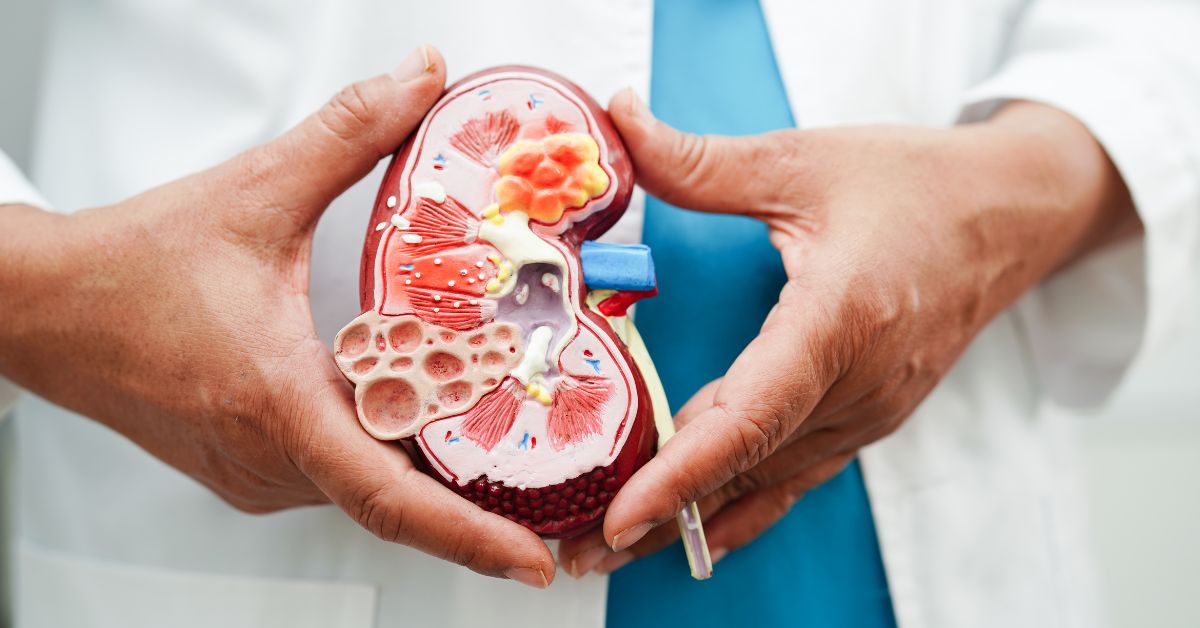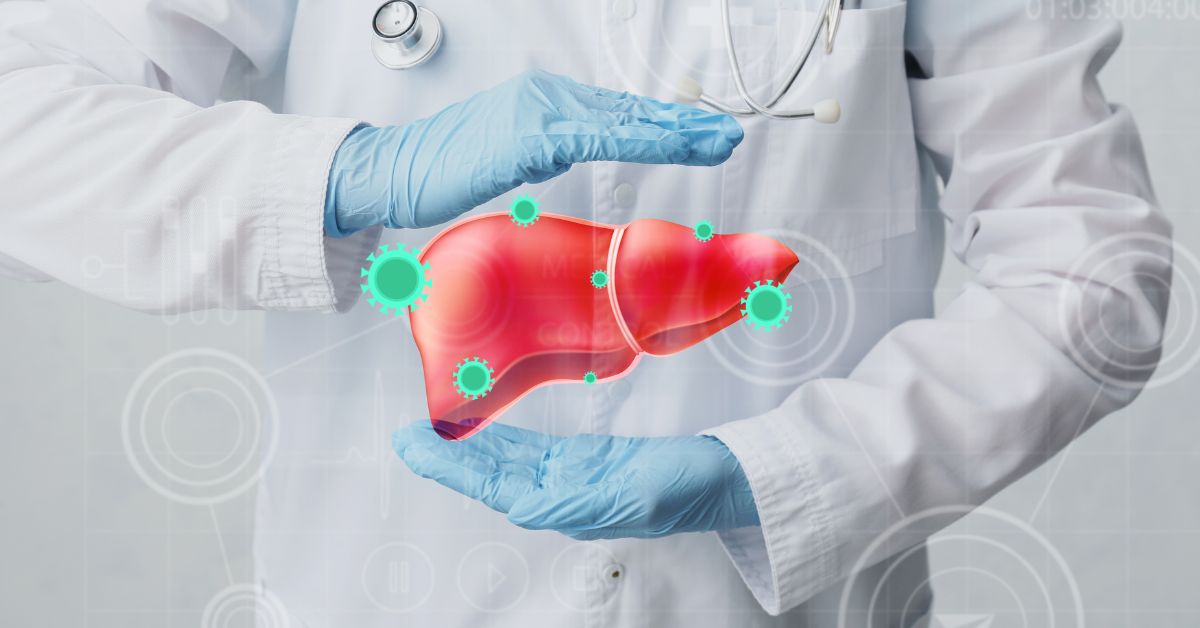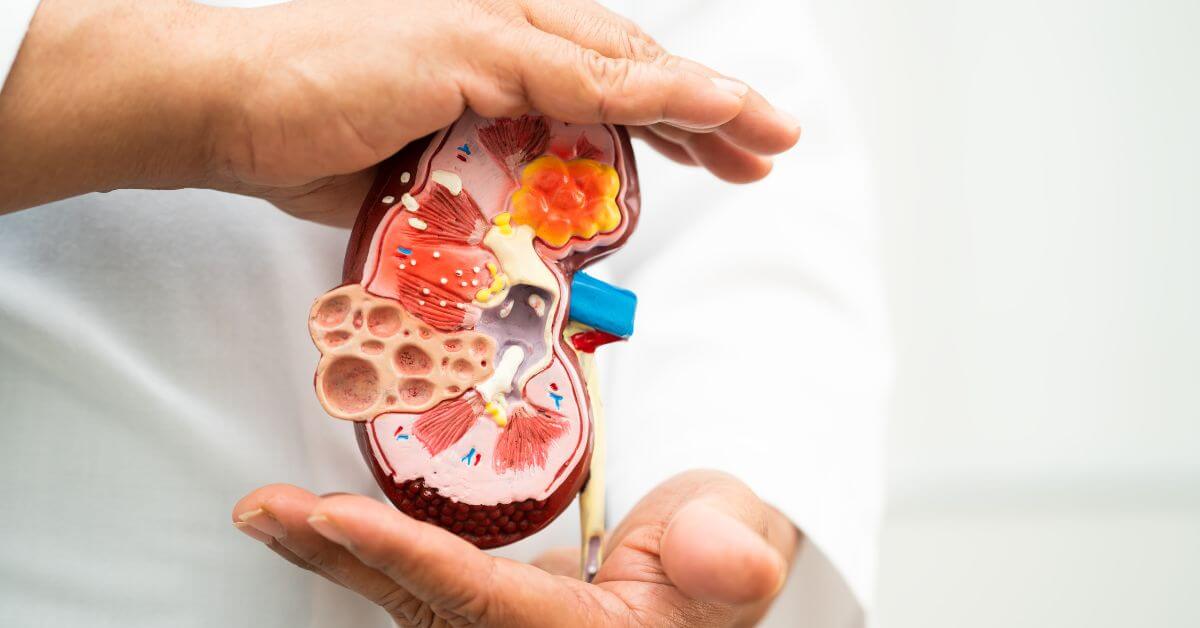“Can You Live with One Kidney?” Yes, you can live with one kidney! Discover the facts, lifestyle tips, and health advice from medical experts. Explained Simply.
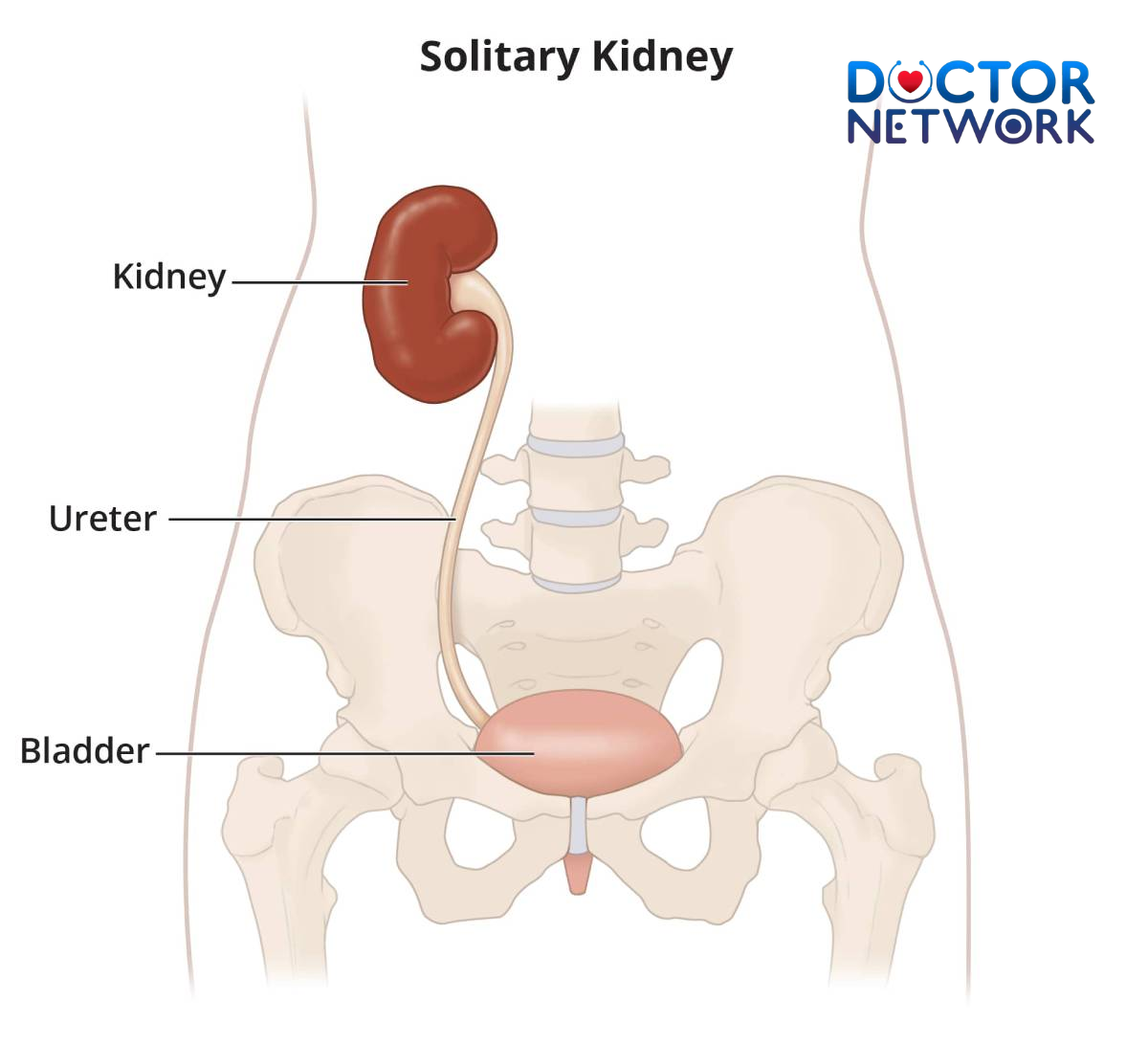
Living with One Kidney in your body
Yes, you can absolutely live a normal, healthy life with just one kidney. The human body possesses remarkable adaptability, and your remaining kidney can effectively handle the workload of two organs through a process called compensatory hypertrophy. This medical reality offers hope to kidney donors, individuals born with a single kidney, and patients who’ve undergone nephrectomy procedures.
This comprehensive guide explores the physiological mechanisms behind single-kidney living, addresses common concerns about longevity and quality of life, and provides essential health management strategies. We’ll examine the various pathways that lead to having one kidney, understand how your body compensates for this change, and outline the preventive measures necessary for optimal renal health throughout your lifetime.
How Someone Might Have Only One Kidney
Three primary circumstances result in individuals living with a solitary kidney, each requiring different medical considerations and follow-up protocols.
Born with One Kidney (Renal Agenesis)
Congenital absence of one kidney affects approximately 1 in 1,000 births. This condition, known as renal agenesis or congenital solitary kidney, occurs during fetal development when one kidney fails to form. Children born with this condition typically experience normal growth and development, as their single kidney adapts from birth to handle increased filtration demands.
Kidney Donation (Living Organ Donation)
Living kidney donors represent the largest population of individuals with intentionally reduced renal mass. Over 6,000 Americans donate kidneys annually, with donors typically experiencing excellent long-term outcomes. The donor screening process ensures candidates possess optimal kidney function and overall health before surgery.
Surgical Removal (Nephrectomy)
Medical nephrectomy becomes necessary due to various conditions including renal cell carcinoma, severe trauma, chronic infections, or congenital abnormalities. Post-surgical outcomes depend largely on the health of the remaining kidney and the underlying condition that necessitated removal.
How One Kidney Functions and Compensates
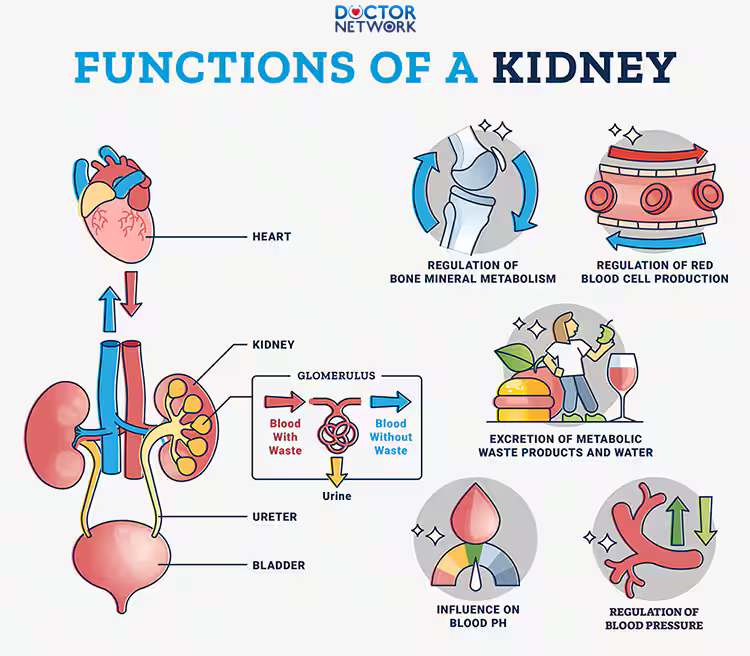
Functions of a Kidney
Understanding renal physiology helps explain why single-kidney living remains compatible with normal health and longevity.
Function of the Kidneys
Your kidneys perform multiple critical functions beyond waste filtration. These bean-shaped organs regulate electrolyte balance, maintain fluid homeostasis, control blood pressure through renin production, stimulate red blood cell formation via erythropoietin secretion, and activate vitamin D for bone health. Each kidney contains approximately one million nephrons, the functional filtering units that process blood continuously.
Compensatory Hypertrophy
The remaining kidney undergoes remarkable adaptation through compensatory hypertrophy. This process involves cellular enlargement and increased nephron efficiency, typically achieving 70-80% of original two-kidney function within months. The glomerular filtration rate (GFR) gradually improves as the kidney adapts to increased workload demands.
| Adaptation Timeline | Functional Changes | GFR Recovery |
|---|---|---|
| 1-2 weeks | Initial cellular response | 40-50% baseline |
| 1-3 months | Structural enlargement | 60-70% baseline |
| 6-12 months | Maximum compensation | 70-80% baseline |
Effectiveness for Health and Survival
Clinical evidence demonstrates that 70-80% kidney function suffices for maintaining health, supporting pregnancy, and ensuring normal life expectancy. The remaining kidney’s enhanced efficiency prevents uremic toxin accumulation and maintains essential physiological processes.
Living a Normal Life with One Kidney
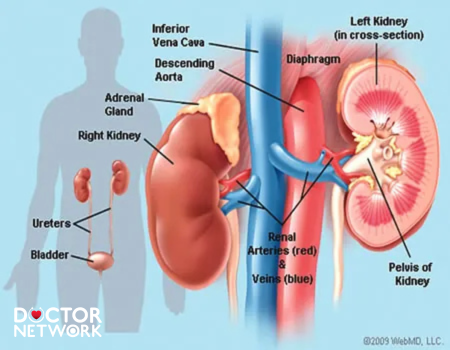
How to live long on one kidney
Most individuals with a single kidney enjoy unrestricted lifestyles with minimal health implications.
Quality of Life Considerations
Research consistently shows no significant quality-of-life differences between single-kidney individuals and the general population. Physical symptoms rarely occur, and daily activities remain unaffected. Mental health outcomes mirror those of individuals with normal kidney function, provided appropriate medical monitoring occurs.
Life Expectancy Outcomes
Studies tracking kidney donors over decades reveal life expectancy equivalent to carefully matched controls. Individuals born with one kidney similarly demonstrate normal longevity when no other congenital abnormalities exist. The key determinant involves maintaining optimal function of the remaining kidney through preventive care.
Activity Levels and Exercise Participation
Most recreational and competitive activities remain accessible to single-kidney individuals. Contact sports require individual risk assessment, though many athletes continue participation with appropriate protective equipment. Swimming, running, cycling, and strength training pose minimal risk and provide cardiovascular benefits that support kidney health.
Recommended Physical Activities:
- Aerobic exercise (walking, jogging, swimming)
- Resistance training with proper form
- Flexibility and balance activities
- Low-impact sports (tennis, golf, cycling)
Potential Risks and Long-Term Considerations
While generally safe, single-kidney living involves slightly elevated risks requiring ongoing medical attention.
Functional Decline Over Time
The solitary kidney may experience gradual function decline over decades, though often remaining sufficient for health maintenance. Annual GFR monitoring helps detect early changes and implement protective interventions. Most individuals maintain adequate function throughout their lifetime.
Proteinuria Development
Small amounts of protein in urine (proteinuria) may develop as the kidney adapts to increased filtration pressure. While usually insignificant, persistent proteinuria warrants medical evaluation and potential treatment with ACE inhibitors or ARBs to reduce glomerular pressure.
Hypertension Risk
Elevated blood pressure occurs more frequently in single-kidney individuals due to altered renin-angiotensin system activity. Blood pressure monitoring becomes crucial, as hypertension accelerates kidney function decline and increases cardiovascular risk.
Chronic Kidney Disease Progression
Although absolute risk remains low, single-kidney individuals face slightly higher chronic kidney disease (CKD) risk compared to the general population. Early detection through regular screening enables timely intervention to slow progression.
| Risk Factor | Normal Population | Single Kidney | Risk Increase |
|---|---|---|---|
| Hypertension | 45% by age 60 | 55% by age 60 | 22% higher |
| CKD Stage 3+ | 6% by age 60 | 10% by age 60 | 67% higher |
| End-stage renal disease | 0.2% lifetime | 0.5% lifetime | 150% higher |
Managing Your Health with One Kidney
Proactive health management significantly reduces complications and preserves kidney function throughout life.
Regular Medical Check-ups and Monitoring
Annual nephrology consultations enable early detection of functional decline or complications. Routine testing includes serum creatinine, estimated GFR, urinalysis, and blood pressure measurement. Additional tests may include 24-hour urine collection, renal ultrasound, or specialized kidney function studies.
Blood Pressure Control Strategies
Maintaining blood pressure below 130/80 mmHg protects against kidney damage and cardiovascular complications. Lifestyle modifications including sodium reduction, weight management, and regular exercise provide foundation therapy. Antihypertensive medications, particularly ACE inhibitors or ARBs, offer additional kidney protection.
Nutritional Recommendations
A balanced diet supports kidney health without requiring severe restrictions. Moderate protein intake (0.8-1.0 g/kg body weight) prevents excessive kidney workload while maintaining muscle mass. Sodium limitation (less than 2,300 mg daily) helps control blood pressure. Adequate hydration (8-10 glasses water daily) supports kidney function without overloading the system.
Kidney-Friendly Dietary Guidelines:
- Fresh fruits and vegetables (potassium awareness if CKD develops)
- Whole grains and lean proteins
- Limited processed foods and sodium
- Moderate alcohol consumption
- Adequate but not excessive fluid intake
Weight Management and Metabolic Health
Maintaining healthy body weight reduces kidney disease progression risk and cardiovascular complications. Obesity exacerbates hypertension and diabetes, both major kidney disease risk factors. Regular physical activity combined with balanced nutrition supports optimal metabolic health.
Avoiding Nephrotoxic Substances
Certain medications and substances can damage kidney function, requiring careful avoidance or monitoring. Nonsteroidal anti-inflammatory drugs (NSAIDs) pose particular risk when used chronically or in high doses. Illicit drugs, excessive alcohol, and certain herbal supplements may also harm kidney function.
Substances to Avoid or Use Cautiously:
- High-dose or chronic NSAIDs (ibuprofen, naproxen)
- Certain antibiotics (aminoglycosides, amphotericin B)
- Contrast dyes (inform healthcare providers about single kidney)
- Excessive vitamin supplements
- Unregulated herbal products
Specific Scenarios and Considerations
Different pathways to single-kidney living require tailored medical approaches and monitoring protocols.
Living Kidney Donors
Living donors undergo extensive pre-donation screening ensuring optimal health and kidney function. Post-donation follow-up typically includes monitoring at 6 months, 1 year, and then annually. Research demonstrates excellent long-term outcomes with minimal complications when proper screening protocols are followed.
Donor-specific considerations include slightly increased pregnancy monitoring, careful medication selection, and prompt treatment of infections or illnesses that might stress kidney function. Most donors return to normal activities within 6-8 weeks and report high satisfaction with their donation decision.
Congenital Solitary Kidney
Individuals born with one kidney often have fully functional, adapted organs from birth. These kidneys typically demonstrate enhanced function and size compared to single kidneys in other populations. Regular monitoring begins in childhood to establish baseline function and detect any associated abnormalities.
Special attention focuses on growth and development monitoring, blood pressure screening, and urinary tract infection prevention. Most children with congenital solitary kidney lead completely normal lives without activity restrictions.
Kidney Removed Due to Disease
Outcomes following nephrectomy depend heavily on the original disease process and remaining kidney health. Cancer patients may require additional monitoring for disease recurrence alongside kidney function assessment. Infection-related removals typically have excellent prognosis when the remaining kidney is healthy.
Post-nephrectomy care emphasizes preserving remaining kidney function through blood pressure control, infection prevention, and regular monitoring. Recovery timelines vary based on surgical approach and underlying health status.
Comprehensive Health Monitoring Schedule
| Time Period | Tests Required | Frequency | Key Monitoring Points |
|---|---|---|---|
| First Year | Creatinine, GFR, urinalysis, BP | Every 3-6 months | Initial adaptation |
| Years 1-5 | Complete metabolic panel, urinalysis | Every 6-12 months | Stable function |
| Long-term | Comprehensive kidney assessment | Annually | Early intervention |
Living Well with One Kidney: Final Takeaways
Living with one kidney is not only possible but compatible with a full, healthy, and productive life. The human body’s remarkable ability to adapt through compensatory hypertrophy enables the remaining kidney to effectively handle the physiological demands typically managed by two organs. Whether you’re a kidney donor, born with one kidney, or underwent nephrectomy for medical reasons, proper health management and regular monitoring support optimal outcomes.
The key to successful single-kidney living lies in proactive healthcare, including regular medical monitoring, blood pressure control, healthy lifestyle maintenance, and avoiding substances that could harm kidney function. With appropriate care, most individuals with one kidney enjoy normal life expectancy and unrestricted daily activities.
Modern medicine’s understanding of renal physiology and improved monitoring techniques provide reassurance that single-kidney living represents a manageable health situation rather than a significant medical limitation. Your healthcare team can provide personalized guidance to ensure optimal kidney health throughout your lifetime, supporting your continued well-being and quality of life.
Frequently common questions about living with one kidney, along with expert answers
1. Can you live a normal life with only one kidney?
Yes, most people with one healthy kidney live normal, healthy lives without significant problems. One kidney can perform the work of two by filtering enough blood to keep the body functioning properly.
2. Are there any long-term health risks of having only one kidney?
While most people do well, there is a slightly increased risk of developing high blood pressure, proteinuria (protein in urine), or kidney function decline over many years. However, these issues are usually mild and manageable, and life expectancy is generally not affected.
3. Do people with one kidney need a special diet?
Generally, a special diet is not required. Maintaining a balanced diet rich in fruits and vegetables, staying hydrated, and avoiding excessive salt and processed foods is recommended. If chronic kidney disease develops, dietary restrictions on sodium, protein, potassium, and phosphorus may be necessary.
4. How can someone protect their single kidney?
Protecting the kidney from injury is crucial since there is no backup. Avoiding contact sports or using protective gear, avoiding harmful medications like NSAIDs, maintaining a healthy lifestyle, and regular medical checkups help keep the kidney healthy.
5. How often should a person with one kidney see a doctor?
It is advised to have at least annual checkups including blood tests to measure kidney function (glomerular filtration rate), urine tests for protein, and blood pressure monitoring. More frequent follow-ups may be needed if any problems arise
References – Can You Live With One Kidney
National Kidney Foundation. (n.d.). Living With One Kidney. Retrieved from https://www.kidney.org/atoz/content/onekidney
Ibrahim, H. N., Foley, R., Tan, L., Rogers, T., Bailey, R. F., Guo, H., … & Matas, A. J. (2009). Long-Term Consequences of Kidney Donation. New England Journal of Medicine, 360(5), 459-469. DOI: 10.1056/NEJMoa0804883
Garg, A. X., Muirhead, N., Knoll, G., Yang, R., Prasad, G. V. R., Thiessen-Philbrook, H., … & Donor Nephrectomy Outcomes Research (DONOR) Network. (2012). Proteinuria and reduced kidney function in living kidney donors: a systematic review, meta-analysis, and meta-regression. Kidney international, 82(4), 450-460. DOI: 10.1038/ki.2012.116
Mayo Clinic Staff. (n.d.). Living with one kidney: Is it possible?. Mayo Clinic. Retrieved from https://www.mayoclinic.org/diseases-conditions/kidney-donation/expert-answers/living-with-one-kidney/faq-20058226
Westland, R., Schreuder, M. F., Ket, J. C. F., & van Wijk, J. A. E. (2014). Long-Term Follow-Up of Children with a Solitary Functioning Kidney. Clinical Journal of the American Society of Nephrology, 9(5), 898-908. DOI: 10.2215/CJN.07150713
Kiểm Duyệt Nội Dung
More than 10 years of marketing communications experience in the medical and health field.
Successfully deployed marketing communication activities, content development and social networking channels for hospital partners, clinics, doctors and medical professionals across the country.
More than 6 years of experience in organizing and producing leading prestigious medical programs in Vietnam, in collaboration with Ho Chi Minh City Television (HTV). Typical programs include Nhật Ký Blouse Trắng, Bác Sĩ Nói Gì, Alo Bác Sĩ Nghe, Nhật Ký Hạnh Phúc, Vui Khỏe Cùng Con, Bác Sỹ Mẹ, v.v.
Comprehensive cooperation with hundreds of hospitals and clinics, thousands of doctors and medical experts to join hands in building a medical content and service platform on the Doctor Network application.
















